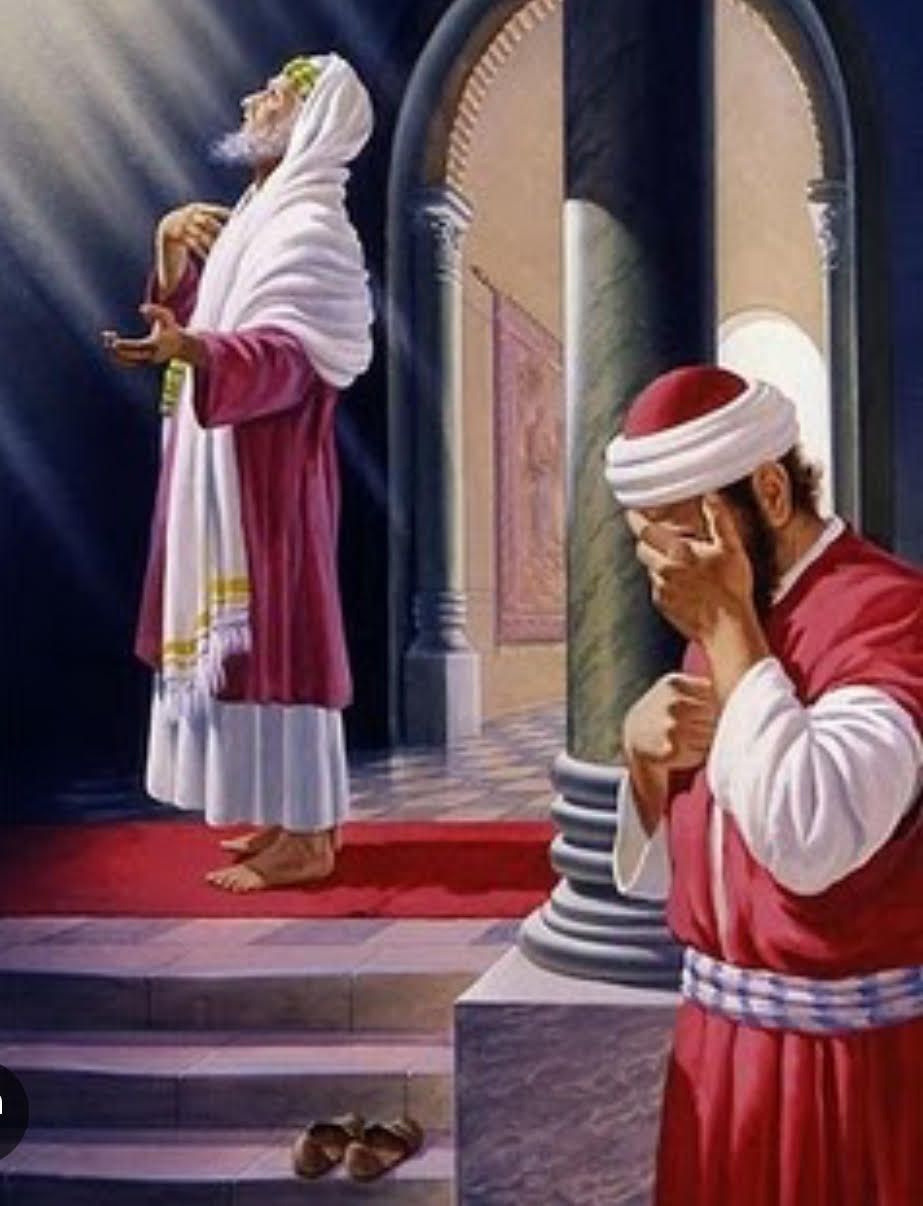30th Sunday in Ordinary Time
October 24, 2025
Gospel Reflection
Luke 18:9-14
Jesus spoke the following parable to some people who prided themselves on being virtuous and despised everyone else: ‘Two men went up to the Temple to pray, one a Pharisee, the other a tax collector. The Pharisee stood there and said this prayer to himself, “I thank you, God, that I am not grasping, unjust, adulterous like the rest of mankind, and particularly that I am not like this tax collector here. I fast twice a week; I pay tithes on all I get.” The tax collector stood some distance away, not daring even to raise his eyes to heaven; but he beat his breast and said, “God, be merciful to me, a sinner.” This man, I tell you, went home again at rights with God; the other did not. For everyone who exalts himself will be humbled, but the man who humbles himself will be exalted.’

St. Paul, whose words we hear once again with the reading from the 2nd letter to Timothy, must be recognised as one of the greatest of all the saints. It must also be said that he was humanly gifted with a sharp mind and, perhaps, with a strong constitution, though this latter is not certain. What is certain is that he was humanly courageous. Though that boldness of his was once used for a misguided cause – the stamping out of Christian teaching – it served the opposite, holy cause of spreading faith in Christ for the greater part of his life. It is surprising that so few films have been made about Paul, because the plot of his life was so eventful and momentous. If Paul was perhaps initially a proud young man, life and the grace of Christ taught him sincere humility. He recognised his personal errors and was frank about his limitations as well as his struggles against temptations of various sorts. In one of his letters he calls himself “the least of the apostles” and “unfit” to be called one (1 Cor 15:9). In another letter he confesses to the common human experience of an interior battle with bad inclinations (Rom 7: 22-25). At the same time, Paul always acknowledges the help that he has received from God – “grace of God which is with me” – to achieve what he has achieved. At the end of his life he is able to rejoice in the fact that he has not given up - “I have fought the good fight, I have run the race” (2 Tim 4:7). He recognizes that righteousness belongs only to God – who is holy in Himself - and we receive a share in it as a crowning touch at the end of life, if we are faithful.
St. Josemaría Escrivá would sometimes ask young people how many saints might there be here on earth. No one would venture to answer whether there might be few or many. He would then give his answer - “none!” Then he would add something like this: “saints only in heaven”. He would further explain that here on earth there are only saints in the making. Yes, we are all called to holiness and there are many people – hopefully ourselves included - who live in the state of grace. But we should never be complacent and self satisfied, like the Pharisee in the parable that Jesus tells in today’s gospel passage. We need to continually work at our Christian vocation, calling on God’s help, and also on his forgiveness.
This is precisely what that man who prayed at the rear of the Temple did. He went away the better for it. How important it is for each one of us to face up to our failings. How fortunate we are to know about God’s mercy and love. How good it is that we have a special sacrament that helps us not to be proud. How great is the sacrament of confession and reconciliation that allows us to make amends for sins both great and small. We are assured of God’s forgiveness and grace as often we make sincere use of it. Yes, St. Paul did sometimes refer to his living fellow Christians as “saints.” They had been sanctified through baptism, and they were doing their best to live in God’s grace. To that extent they were holy people, but not in the sense of being totally without fault or weakness.
We should never let discouragement, much less despair, enter our lives. We cannot let pride get the better of us, making us frustrated and bitter. Ours should be a cheerful and sporting spirit. “Is any one of you sad,” writes St. James the Apostle. “Let him pray” (James 5. 13 ). This is what the publican did. And he went away with his hope renewed, happy to have experienced the Fatherhood of God.


